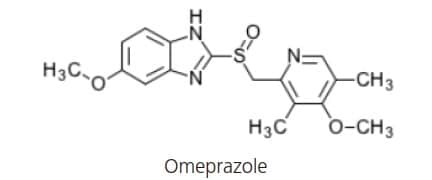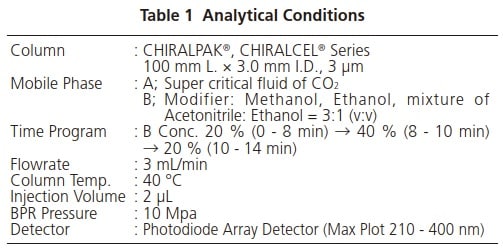Automated Optimization of Chiral Separation Parameters Using Nexera UC Chiral Screening System
Chiral compounds contain asymmetric carbons in their molecules and are not superimposable on their mirror images. HPLC has been the main method used to separate such chiral compounds, but in recent years, the use of supercritical fluid chromatography (SFC) has been gaining attention. The main mobile phase used for chiral SFC is supercritical carbon dioxide, with low polarity, low viscosity, and high diffusivity, to which polar organic solvents (modifiers) are added to control solubility and polarity. Therefore, chiral compound separation by HPLC, which generally uses normal phase conditions, offers the potential for high speed, low organic solvent consumption, low cost, and low environmental impact.
However, chiral SFC requires selecting a variety of separation parameters, such as columns and modifiers, which can involve large amounts of time and effort. This article describes using the Nexera UC chiral screening system to automatically optimize the large number of separation parameters by switching between up to 12 columns and various mixture ratios of four types of modifiers. This can significantly reduce the effort required.
Chiral Screening System
Features:
This system is best for developing methods to separate chiral compounds.
It automatically generates a large number of methods by utilizing combinations of up to 12 columns, four modifiers, and a different ratio of modifiers to mobile phase.




